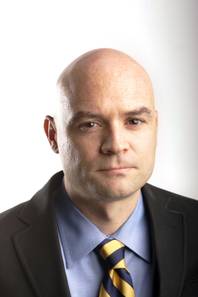Thursday, June 13, 2013 | 2 a.m.

J. Patrick Coolican
Sun coverage
On Sunday, I expressed disappointment that the Legislature didn't make more progress on mental health issues.
In fairness, I want to lay out what the Sandoval administration feels it accomplished during the recently completed legislative session.
First, here's why my Sunday remarks were so dour: If there were ever a legislative session to patch up Nevada's frayed mental health safety net, it should have been this one.
Steven Brooks, one of the Legislature’s own members, seems to have suffered some sort of mental breakdown, allegedly threatening Speaker Marilyn Kirkpatrick before his removal as a member of the state Assembly. He is currently in a California jail.
Meanwhile, the Sacramento Bee revealed our practice of discharging some 1,500 patients from Rawson-Neal Psychiatric Hospital to Greyhound buses in the past five years. Patients were given one-way tickets to other cities where they had family or friends. In 10 cases, the patients were sent to places with no family or support network waiting for them.
This was an ideal time for the Legislature to hold high-profile hearings, particularly in Southern Nevada, on the state of mental health treatment. The job of a Legislature isn’t merely to pass laws. It’s to drive public policy debate, to investigate, inform and provoke. More than we realize, our failure to provide adequate mental health treatment affects all of us — especially by clogging emergency rooms and forcing Metro Police to act as a de facto mental health agency when they should be allowed to focus on preventing and solving crime.
Indeed, the Legislature did not generate the discussion for which I had hoped.
But the session was not without progress on mental health treatment.
Dr. Tracey Green, the chief medical officer of the state Division of Public and Behavioral Health, pointed to gains in a few key areas.
It seems there’s an effort to create a real system of stable care rather than stumbling from one crisis to another.
“We’re trying to look at it as a whole system and see where we can put things in place that are long-term solutions,” Green said.
About $16 million has been added to the mental health budget for the upcoming biennium, according to Green. We will still spend far less per capita than nearly every state in the union and only 57 percent of the national average, according Kaiser State Health Facts — but it’s not nothing.
A new mental health urgent care center in Las Vegas will eventually be a 24/7 clinic for emergencies. Hopefully this will take some of the strain off overtaxed emergency rooms.
Green said a new program, believed to be the first of its kind in the country, will assess the family situation of clients leaving the hospital or criminal justice system and help establish a stable home environment.
“Often the client is stable, but the home isn’t,” she said. “That’s often the missing piece of a discharge plan.”
So now, caseworkers will evaluate the home environment for potential risk factors such as guns or drugs and provide resources to stabilize it if need be.
The budget also includes a $4 million contingency fund to fix the problems at Rawson-Neal that led to the Greyhound patient dumping scandal.
The major mental health legislation of the session was Assembly Bill 287, which created a system of “outpatient civil commitment” for mentally ill patients who have a history of brushes with the law and failing to take medication.
This law is modeled after a similar one passed in many other states, including New York after a woman was pushed in front of a subway train there by a mentally ill man in 1999.
Instead of allowing the justice system to institutionalize someone, the new law gives judges the power to force mentally ill repeat offenders into outpatient treatment, specifically requiring the medication many need but do not take — leading to the revolving door among jail, emergency rooms, Rawson-Neal and the street, sometimes with tragic consequences.
In his testimony favoring the bill, Judge William Voy estimated Clark County is home to some 200 residents who fit this profile.
Judges, police and a wide range of mental health advocates favored the legislation.
Writing in The New York Times, E. Fuller Torrey, founder of the Treatment Advocacy Center, says a 2005 study of more than 2,700 people to whom the law was applied found that, after treatment, the rate of homelessness in the population fell 74 percent, the number who needed to be rehospitalized dropped 77 percent and the number arrested fell 83 percent.
The Nevada Disability Advocacy & Law Center opposed the bill on the grounds that it violated people’s constitutional rights by not allowing them to refuse treatment that often comes with harmful side effects. Moreover, Jack Mays, the executive director of the center, testified in a legislative hearing that Nevada already has a shortage of outpatient treatment. Involuntary commitment would merely worsen the shortage.
Green said implementation will be the key to the new law. “It can’t occur if we don’t have a team in place,” she said. Once 75 clients are enrolled in the program, a waiting list will be established until a client graduates from the program, she said.
The state is hiring a team that will include a psychiatrist, psychologist, nurse, social worker and others to serve clients in the new program.
Green sounded hopeful that systemic improvements are coming to our mental health system, even if incrementally.
After talking to Green, I guess I would say this: Nevada has a long way to go, but at least we are no longer moving in the wrong direction.

Join the Discussion:
Check this out for a full explanation of our conversion to the LiveFyre commenting system and instructions on how to sign up for an account.
Full comments policy